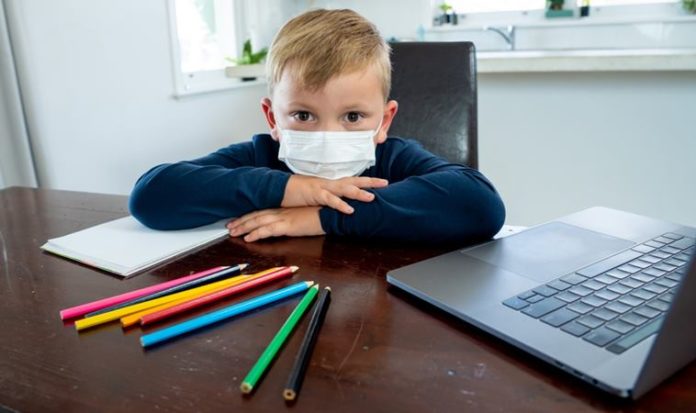New Delhi (NVI): At least 1 in 7 children – or 332 million globally – has lived under required or recommended nationwide stay-at-home policies for at least nine months since the start of the COVID-19 pandemic, putting their mental health and well-being at risk, according to a UNICEF report released today.
While almost all children worldwide have lived under some form of intermittent lockdowns for the last year, the new analysis by UNICEF, which uses data from the Oxford COVID-19 Government Response Tracker, identifies some of the most enduring lockdown conditions worldwide.
According to the analysis, 139 million children globally have lived under required nationwide stay-at-home orders for at least nine months since COVID-19 was characterized as a pandemic on 11 March 2020 – meaning they are required to stay at home with few exceptions – including children living in countries such as Paraguay, Peru and Nigeria. The rest of the 332 million – or 193 million – have lived under recommended nationwide stay-at-home policies for the same amount of time, as per the UNICEF report.
“With nationwide lockdowns and pandemic-related movement restrictions, it has been a long year for all of us, but especially for children,” said UNICEF Executive Director Henrietta Fore.
“When – day after day – you are away from your friends and distant loved ones, and perhaps even stuck at home with an abuser, the impact is significant. Many children are left feeling afraid, lonely, anxious, and concerned for their future. We must emerge from this pandemic with a better approach to child and adolescent mental health, and that starts by giving the issue the attention it deserves,” she said.
As the pandemic enters its second year, the impact on children and young people’s mental health and psychosocial well-being is taking a toll. In Latin America and the Caribbean, a recent UNICEF U-Report poll of young people generated more than 8,000 responses and found that more than a quarter had experienced anxiety, and 15 per cent depression.
Even before the pandemic, children and young people carried the burden of mental health risks, with half of all mental disorders developing before age 15, and 75 per cent by early adulthood. The majority of the 800,000 people who die by suicide every year are young people, and self-harm is the third leading cause of death among 15–19-year-olds, with higher rates among adolescent girls. It is estimated that globally 1 in 4 children live with a parent who has a mental disorder.
For children experiencing violence, neglect or abuse at home, lockdowns have left many stranded with abusers and without the support of teachers, extended families and communities. Children in vulnerable population groups – such as those living and working on the streets, children with disabilities, and children living in conflict settings – risk having their mental health needs overlooked entirely.
According to WHO, the COVID-19 pandemic has disrupted or halted critical mental health services in 93 per cent of countries worldwide, while the demand for mental health support is increasing. A study from 194 cities in China found that 16 per cent of respondents reported moderate to severe depressive symptoms during the pandemic, and 28 per cent moderate to severe anxiety symptoms.
In response, UNICEF is supporting governments and partner organizations to prioritize and adapt services for children. For example, in Kazakhstan, UNICEF launched a platform for individual online counselling services for children, alongside distance training in schools for mental health specialists. In China, UNICEF and social media company Kuaishou launched an online challenge to help reduce anxiety in children.
Later this year, UNICEF will dedicate its biennial flagship report, State of the World’s Children, to child and adolescent mental health, in an effort to increase awareness of the global challenge and provide solutions, and to encourage governments to place heightened focus on the issue.
“If we did not fully appreciate the urgency prior to the COVID-19 pandemic – surely we do now,” added Fore. “Countries must dramatically invest in expanded mental health services and support for young people and their caregivers in communities and schools. We also need scaled-up parenting programmes to ensure that children from vulnerable families get the support and protection they need at home,” she said.
-ARK








